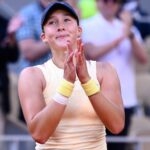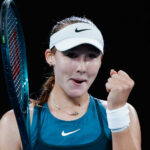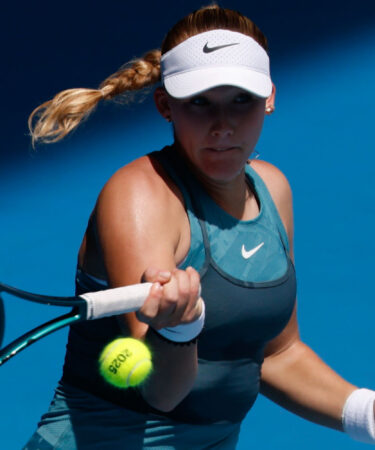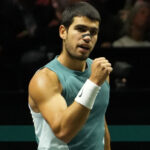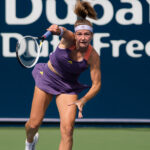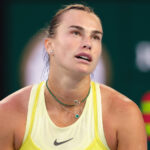“I always play the way I want to play” – Andreeva, the lightness of adolescence, in the Roland-Garros semi-finals
Mirra Andreeva reveals what allows her to play so freely in big moments, after her upset victory over Aryna Sabalenka in the Roland-Garros quarter-finals
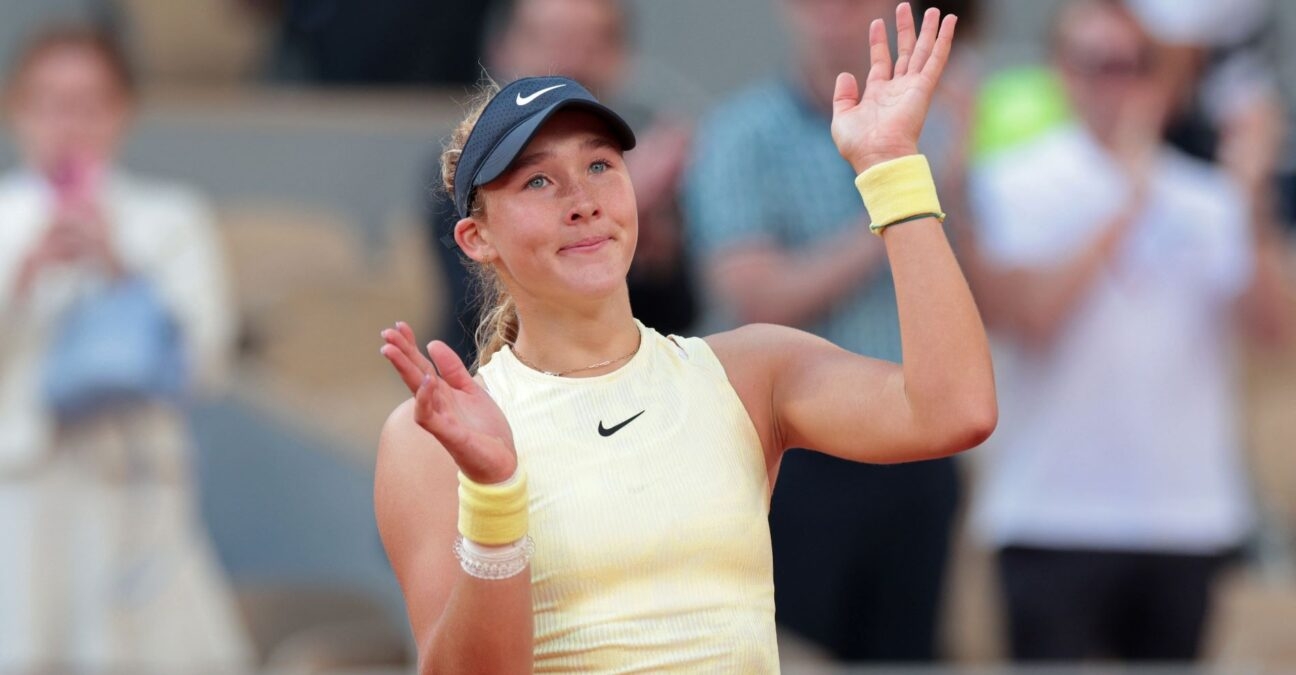 Action Plus/Panoramic
Action Plus/Panoramic
We do not know how many Grand Slam tournaments Mirra Andreeva will have won when she is, say, 25 years old, and appears at the Roland-Garros press conference to debrief her matches.
But like her elders, she will talk about her ability to play under pressure, her management of strong times and weak times, the quality of her service or the solidity in rallies.
She will talk about tennis, she will talk about high-level sport, she will talk about the life that awaits her: that of a champion confronted with the weight of her ambitions and her responsibilities.
At 17 years old, while here she is in the semi-final of Roland-Garros against the Italian Jasmine Paolini, the Russian resident of Cannes owes her presence in the last four of a major to her quality of play, obviously, to a “maturity” that she recognises in herself, but she also owes it to the famous carelessness of her age.
“The carelessness of youth”. Widely overused – few people realise how much these teenagers learn life in a hurry by working so early on to realise their destiny – this expression covers a reality that is rarely explained with precision and relevance.
Andreeva managed to share it in the wake of the greatest success of her career, against Aryna Sabalenka (6-7, 6-4, 6-4).
Andreeva’s strength: Spontaneity
In English that is already well developed, Andreeva is as good at finding right angles against the world No 2 as she is at putting words to the mechanics of her success.
“I always play the way I want to play,” she responded spontaneously to a question about her greatest strength as a tennis player. This brilliant response could mean that she imposes her game plan on the opponent, or that she never deviates from her tactical plan.
It means the opposite: it means that his spontaneity in is control, whatever the cost.
“We have a plan with my coach (Conchita Martinez) for the match, but after, I forget everything,” Andreeva shared. “When I play a match I don’t have any thoughts in my head. So maybe I would say that my strength could be that I just play how I want to play and I do whatever I want to do, and maybe this helps me when I play.”
This extreme spontaneity, which has taken her to 38th in the world (23rd at least next Monday), is exercised “shot to shot”, she explained.
“When, for example, [my opponent] plays a forehand crosscourt, I have time to see where she’s standing, where she kind of waits for my ball to go, and then I decide, well, what should I do? Should I go down the line or should I do cross, should I do a dropshot, should I do a lob?
“That’s sometimes not really good because I have a lot of decisions in my mind. When I change them in the last moment, always some kind of crap happens,” Andreeva continued.
“Sometimes it plays a bad joke with me, so I’m trying to keep it simple sometimes, but I cannot help it. Sometimes I just have too many decisions in my head.”
Despite her status as a teen prodigy on the circuit–qualified for the round of 16 at Wimbledon at 16 years old–Andreeva did not envisage being, in Paris, the youngest Grand Slam semi-finalist since Martina Hingis in 1997.
“I would say that I didn’t really expect me playing semi-finals tomorrow,” Andreeva said. “Well, I played Gracheva a few days ago and I was, like, if I win the match I will be in quarterfinals, but then if I play Sabalenka and if I win I can be in semifinals. Wow, that could be a dream.”
A dream that comes true.
Sabalenka, a bridge too far?
One certainty: Andreeva is not one of those who knows how to worry the best players in the world, but whose arm trembles when it comes time to conclude.
When it is suggested to her that her victory against Sabalenka materialises a very strong belief in her own potential, she tells a different story.
“Before the match, I was very nervous, and my goal was just to win more games than I won in Madrid (five, editor’s note),” Andreeva explained.
“I would say that in the beginning I didn’t really believe it, because, I mean, she’s very experienced. She’s a great player, very aggressive. So, it was like, well, we’ll see what will happen, but I’m not sure if I can do it, but I will just try to enjoy the atmosphere and try to play the best way I can.
“After I lost the first set 6-7, I was, like, well, now I have to go for the set at least to make it three sets.”
“After, I just tried to play point by point and win as many points as I can,” she continues, “After, when I won the second set and I was up in the score in the third, I was, like, well, I’m closer. I’m getting closer to it. I’m really close to winning.
“But the second I thought about that, I lost my serve and I lost her serve. So I just told myself, don’t think about that ever again. Just play, because when you just play and you don’t think about anything, you play the best.
“So I just tried to turn off my mind and my thoughts and continued playing.”
Another way to put this testimony is that Andreeva learned in one match what many take years to acquire. Her opponent in the semi-final, for example, Jasmine Paolini, who will enter the top 10 at 28 years old.
After 10 years of thinking this type of performance wasn’t for her.
